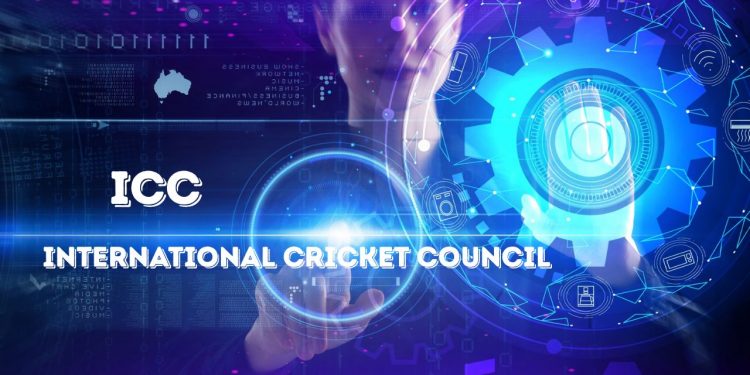Sanjog Gupta noted that even as attempts are made to enter new markets, maintaining and enhancing cricket’s fundamental elements is essential to the sport’s survival. The ICC CEO told members of the ICC Board on Friday that the ICC’s vision still revolves around the athletic spectacle.
We must constantly aim for improved context, competition, and competitiveness in our activities since the ‘athletic spectacle’ that a sporting event provides is essential to its success. Our events must be inclusive, immersive, and impactful cultural experiences that last a lifetime. In his speech, Gupta stated, “They must also be viewed as prestigious competitions for our players, constantly enticing the best players to take part.”
“We must raise the caliber of our events, maintain fandom through ongoing experiences, and create engaged subgroups and associated communities. “The depth and breadth of engagement that our product portfolio can deliver, as well as our ability to commercialize engagements across multiple consumer touchpoints, are directly linked to our ability to generate more value for the ICC membership,” the ICC CEO stated in his speech, which Cricbuzz was able to see.
Reviewing ICC products with a “fit for future” perspective is crucial, Gupta emphasized. In order to provide our current followers with more value and attract new ones, it is necessary to revisit the competition formats and investigate alternative arrangements. As he noted, “We must work together to elevate our events because the impact that a successful event has extends well beyond the borders of the host locations and the participating countries.”
Additionally, he emphasized the significance of keeping up the development of improved digital and live experiences for participants and fans. The majority of consumer categories are spending more on “unmissable moments” and “immersive experiences,” indicating the growth of the experiential and engagement economies. The delivery of an upgraded experience depends on on-field athleticism, but it is impossible to overlook the entertainment and lifestyle elements. Similarly, fan involvement will continue to be fueled by our events’ live broadcast.
In his opening remarks, Sanjog Gupta emphasized the significance of change.
In order to diversify and expand the game, Gupta continued, the ICC needs to reconsider its economic model. “Cricket needs to work to expand, deepen, and diversify its economic model. The current commercialization of the sport must be reexamined, and the existing economic models must be strengthened, updated, or reconstructed. The models of collaboration with our distribution and commercial stakeholders will be significantly impacted by this.
The ICC leadership has started a strategy reset, a comprehensive framework to define the sport’s growth blueprint for the next ten years, aiming to strike a balance between sporting integrity, economic sustainability, and a fan-first mindset. “It could also mean the introduction of a different profile and segment of partners for international cricket,” he declared. “Technology will be crucial to the game’s development. Technology must be adopted and implemented into every aspect of cricket, from operations to fan interaction, from data analytics to immersive experiences. Cricket needs to be regarded as a sport at the vanguard of innovation.
Olympics: An opportunity of a lifetime
Cricket’s return to the Olympics offers a transformative potential, the CEO of the ICC explained. “Cricket’s inclusion in the Olympic Games (LA28) represents one of the sport’s most revolutionary prospects, with the potential to reach millions of new followers. In order to successfully deliver the event in 2028, the ICC teams have been in continuous communication with the IOC and LA28. Significant talks over cricket’s inclusion in Brisbane 2032’s program have also just started.
Additionally, the inclusion promises substantial access to government financing, enabling more substantial game investments. Cricket’s inclusion in regional multi-sport tournaments like the Asian, Pan-American, and African Games will also help the sport get more recognition in areas where it is not as popular. In many countries, this will support grassroots and high-performance programs. In his presentation, Gupta stated that the ICC teams are still interacting with governments, governing bodies, and sports federations to advocate for cricket’s inclusion in more regional and sub-regional competitions.
After 128 years, cricket will be included in the Olympics again. ICC chair Jay Shah and Gupta recently met IOC president Kirsty Coventry in Lausanne, Switzerland. Key subjects of debate included the development of women’s sport and cricket’s position in the Olympic movement. The two also discussed event delivery, competition formats, and qualification processes in-depth with teams from the IOC, LA28, and Brisbane 2032 communities.
Alter… or be altered
“With paradigm transformations in consumption and culture already under way, our world is constantly changing. As a microcosm of the globe, sport is likewise changing, sometimes intentionally and other times due to disturbance. At the core of this swift development is the fan, who is characterized by several but overlapping manifestations of fandom, such as a participant, a watcher, a consumer, and now even a producer. The modern fan is more distinct, less perceptive, more connected, and more demanding, yet they still yearn for a feeling of identity, connection, and belonging—possibly more so than ever in a world that is more divided and diverse than ever before.
We have a responsibility to guide these transformative forces into becoming forces of growth for the global game, as we are the guardians of the second-largest sport in the world, with over 2 billion fans in over 100 nations. We must view them as significant possibilities rather than letting them turn into obstacles. We must be prepared to examine our history in order to improve our prospects for the future. We must endeavor to be more imaginative, cooperative, and brave—qualities that our athletes consistently exhibit on the field.”







